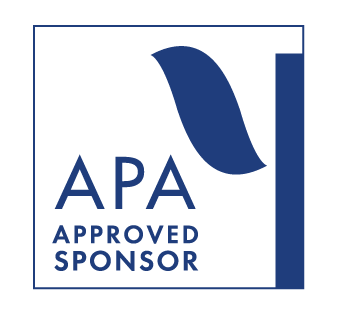The Western Disease: Autism in the Somali Community
- Topic Areas:
- Autism Spectrum Disorder | Culturally-Adapted Treatments
- Categories:
- Pre-Recorded Homestudy
- Speakers:
- Yasmine Moideen, Ph.D., LP | Andrew Fink, Psy.D., LP
- Course Levels:
- Intermediate
- Duration:
- 1.0 Hour
- License:
- Never Expires.
Producer: Minnesota Psychological Association
Description
Note: If you attended this session live (April 8, 2021 Virtual Conference) and received credit, you cannot attend the on demand session for additional credit.
There is no word for Autism in Somalia. In the US, Minnesota is home to the largest Somali community, with the majority residing in the Minneapolis-St. Paul area. In 2008, the Minnesota Department of Health initiated a study to explore the prevalence of Autism in the Somali community. This study was initiated following the concerns expressed by the community about the numbers of preschool children in the Minneapolis Public Schools classified with ASD. Data released in 2013 indicated no statistically significant difference between ASD in the Somali community in MN and Caucasian community in MN. Nonetheless, the Somali community continues to have concerns about high levels of ASD in their community, stating that it did not exist in their community prior to arrival in the US. Given the aforementioned concerns, it is important to examine the cultural limitations to assessment and treatment for the purposes of better serving our clients in the Somali community.
This session is at the intermediate level and is designed for psychologists and other mental health professionals.
Objectives:
- Demonstrate knowledge of prevalence data of Autism in the Somali population in MN and other parts of the world.
- Demonstrate knowledge of how the Somali community may view and describe Autism.
- Describe cultural challenges and limitations in the assessment and treatment of Autism in the Somali population.
Credits
Courses sponsored by the Vermont Psychological Association are pre-approved for continuing education for psychologists by the Vermont Board of Psychological Examiners. This course qualifies for 1 continuing education credits.
Continuing education courses sponsored by the Vermont Psychological Association are pre-approved by the Vermont Office of Professional Regulation for continuing education credit for licensed independent clinical social workers in Vermont. This course provides 1 CE credits for Vermont licensing.
This course has been approved for continuing education credit by the Vermont Board of Allied Mental Health and earns 1 continuing education credits.

The New Hampshire Psychological Association is approved by the American Psychological Association to sponsor continuing education for psychologists. The New Hampshire Psychological Association maintains responsibility for this course and its content.
Completion of this course earns 1 continuing education credits. Psychologists licensed in states which approve courses sponsored by APA-approved sponsors may earn homestudy continuing education credit for taking this course.
The Vermont Psychological Association is approved by the American Psychological Association to offer continuing education for psychologists. These credits are also accepted by the New Hampshire Board of Mental Health Practice for clinical social workers licensed in New Hampshire, as provided in Mhp 402.02(b)(1). The course qualifies for 1 continuing education credits.
The Vermont Psychological Association is approved by the American Psychological Association to offer continuing education for psychologists. These credits are also accepted by the New Hampshire Board of Mental Health Practice for clinical mental health counselors licensed in New Hampshire, as provided in Mhp 402.02(b)(1). The course qualifies for mandated credit types as follows:
Ethics:
Suicide Prevention:
The Vermont Psychological Association is approved to offer continuing education to licensed clinical social workers by the Vermont Office of Professional Regulation, and is approved by the American Psychological Association to offer continuing education to psychologists. This course thus qualifies for 1.2 continuing education credits for Massachusetts licensed clinical social workers in Massachusetts under 258 C.M.R. §§ 31.04(2)(d), 31.04(5).
The Vermont Psychological Association is approved to offer continuing education to licensed clinical social workers by the Vermont Office of Professional Regulation, and is approved by the American Psychological Association to offer continuing education to psychologists. This course thus qualifies for 1.2 continuing education credits for Massachusetts licensed certified social workers in Massachusetts under 258 C.M.R. §§ 31.04(2)(d), 31.04(5).
The Vermont Psychological Association is approved by the American Psychological Association as a continuing education sponsor for psychologists. Continuing education credit in the amount of 1 credits earned in this course may be accepted by the Connecticut Department of Public Health for licensed clinical social workers under Conn. Agencies Regs. § 20-195o(c)-3.
This course is pre-approved for credit for Connecticut licensed professional counselors under Conn. Agencies Regs § 20-195cc-3(a)(1). This course qualifies for 1 continuing education credits.
Speaker

Yasmine Moideen, Ph.D., LP Related Seminars and Products
My specialty is in child psychology. I am a developmental psychology nerd, with a goal to understand the ever-changing brain at each stage of life and what this means for behavior and emotional difficulties. A child psychologist needs to have patience, insight, and the ability to intuit underlying fears and distress, because children are not always able to voice these concerns. In this way, a psychologist is a translator of the inner world of the child, someone who can create a bridge to a less chaotic and more joyful home life, school life, and social life. A particular area of interest is helping parents navigate the confusing and, sometimes, stormy world of parenting. I love getting to the bottom of meltdowns, anxiety, irritability, and hurdles in learning. I also love working with adults in individual therapy. The type of therapy I offer includes delving into one's history for the sake of gaining a better sense of self, to find more joy and meaning in your relationships and work. In my work with clients, I am usually described as warm, funny, pragmatic, and solution focused.
My treatment approaches include cognitive behavioral therapy (assessing and changing environmental triggers and thoughts contributing to a problem), play therapy (using play as a medium for therapy), and family systems therapy (assessing and changing family dynamics). Another area of expertise is psychological testing with children and adolescents in order to assess for ADHD, autism, learning difficulties, and other referral concerns.
My family consists of my husband, college age twins (boy/girl), and our anxious cat who keeps us on our feet. I was born in India and grew up in Queens, NY and consider myself a midwestern girl at heart. I am a foodie who loves hole in the wall eateries and a warm bowl of ramen filled with perfectly cooked noodles and an underpoached egg. When I am not pretending to be a food critic, you can find me on the tennis court working on perfecting my topspin or hiking through densely forested, unpaved trails.
The speaker has indicated they do not have any conflicts of interest.

Andrew Fink, Psy.D., LP Related Seminars and Products
Andrew Fink, Psy.D., LP, Director of Psychological Services, works at the Minnesota Autism Center–in Minnetonka, Minnesota. As a BBHT approved clinical supervisor, he specializes in conducting evaluations to include competency in the ADOS-2, diagnosing Autism Spectrum Disorder, Intellectual Developmental Disorder, and an array of co-morbid disorders; implementing trainings to various Minnesota Autism Center site supervisors on the ADOS-2, co-leading and implementing newly acquired electronic health record information systems, training new clinicians, and supervising assessment practicum students and licensed eligible individuals as well.
The speaker has indicated they do not have any conflicts of interest.
Course Objectives
Objective 1Demonstrate knowledge of prevalence data of Autism in the Somali population in MN and other parts of the world.
Objective 2
Demonstrate knowledge of how the Somali community may view and describe Autism.
Objective 3
Describe cultural challenges and limitations in the assessment and treatment of Autism in the Somali population.



